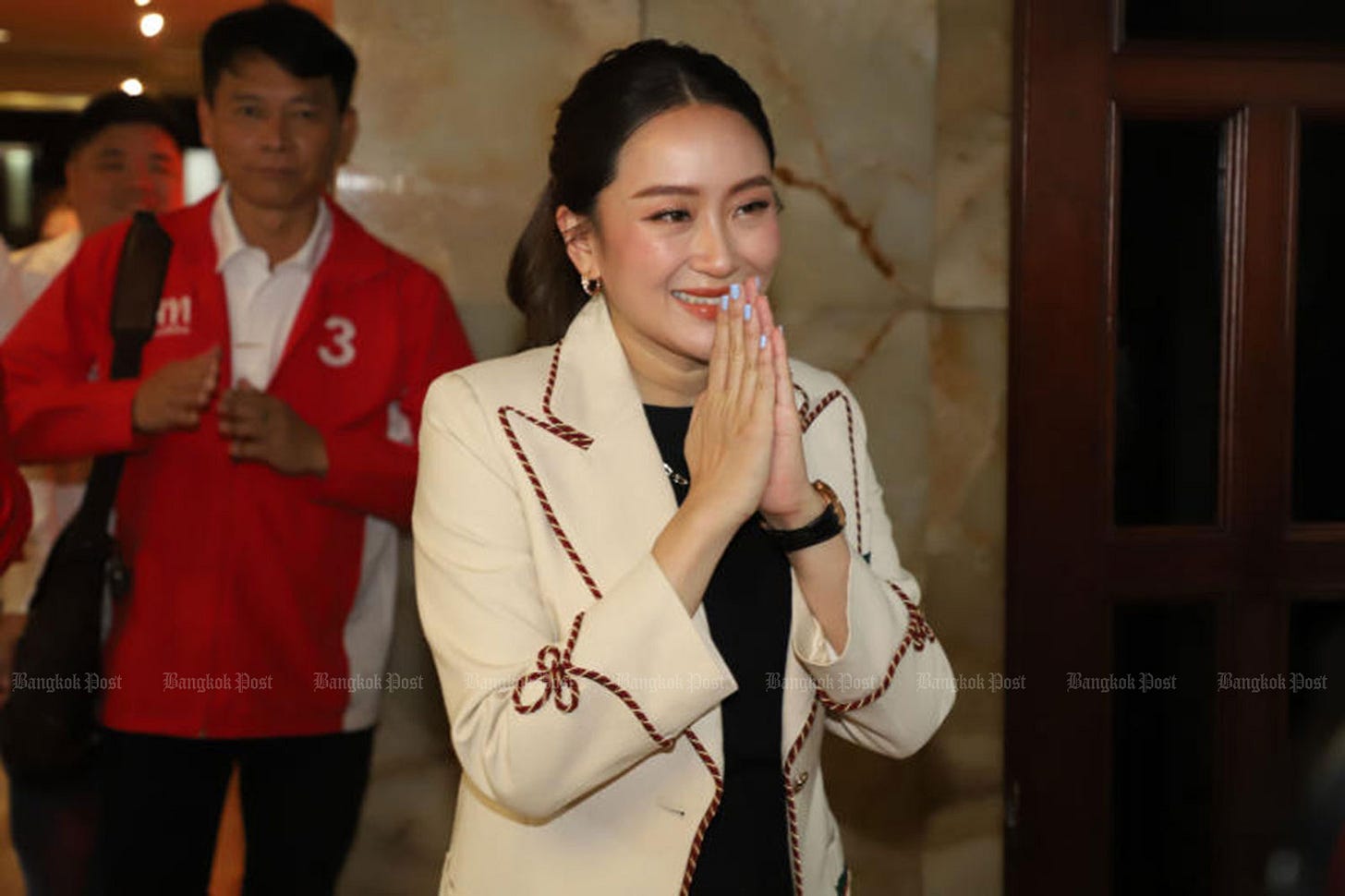Family Thais
Thai heiress Paetongtarn Shinawatra elected Thailand’s 31st prime minister, Wang Yi "China will support early political reconciliation and a democratic transition in Myanmar"

Paetongtarn Shinawatra elected Thailand’s 31st prime minister
The House of Representatives on…




